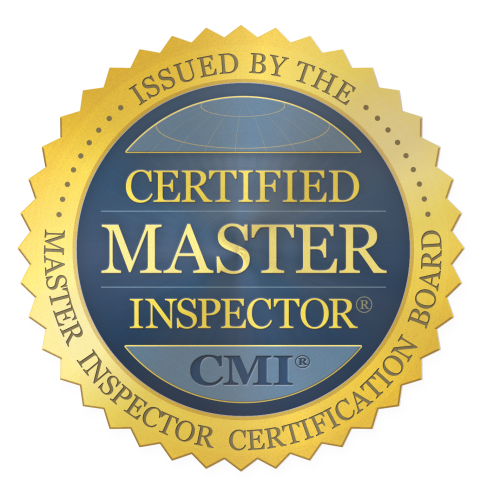jay's blog
Mosby's Midnight Raid
 Robert E. Lee is said to have exclaimed, "Hurrah for Mosby! I wish I had a hundred like him!" Ulysses S. Grant is said to have told General Philip Sheridan that "where any of Mosby's men are caught, hang them without trial." It was Abraham Lincoln who gave him his moniker of "The Gray Ghost," when, as his reputation increased, the Union Army's biggest fear in Washington was that Mosby would kidnap Lincoln from right beneath their nose. Lincoln, upon hearing several of his generals discussing Mosby and their fears, loudly announced, "Listen to you men, you speak of Mosby as though he is a ghost, a gray ghost." It wasn't until after the war that Mosby learned of this and the nickname stuck.
Robert E. Lee is said to have exclaimed, "Hurrah for Mosby! I wish I had a hundred like him!" Ulysses S. Grant is said to have told General Philip Sheridan that "where any of Mosby's men are caught, hang them without trial." It was Abraham Lincoln who gave him his moniker of "The Gray Ghost," when, as his reputation increased, the Union Army's biggest fear in Washington was that Mosby would kidnap Lincoln from right beneath their nose. Lincoln, upon hearing several of his generals discussing Mosby and their fears, loudly announced, "Listen to you men, you speak of Mosby as though he is a ghost, a gray ghost." It wasn't until after the war that Mosby learned of this and the nickname stuck.
It was General Lee, through General J.E.B. Stuart, who authorized John Singleton Mosby to organize the 43rd Battalion Virginia Calvary "to weaken the armies invading Virginia by harassing their rear." They operated in my neighborhood, throughout Northern Virginia, in an area known, during the Civil War, and even in the Northern press, as "Mosby's Confederacy." Not exactly rag tag, they were not the disciplined, military regiment that all might imagine. 
The regiment was formed to disrupt Union supply and communication lines. Mosby's Rangers would stay individually in many locations, coming together for raids. They also became known as Mosby's Raiders or Mosby's Ghosts.
Their most famous raid occurred around 2am on 9 March 1863, when Mosby and 29 men suddenly appeared in the town of Fairfax Court House, VA., 10 miles behind the Union lines. This garrison contained many Union troops, with thousands surrounding the area.


They made their way through the complex of buildings, including the court house seen here. This is how the Fairfax Court House looked in 1863 and its preserved appearance today. They ended up at what is today known as "The Dr. William Gunnel House." It was used as a headquarters by Union General Edwin H. Stoughton.
Arriving at the door, and politely knocking, a lieutenant aid had little choice but to open it to Mosby and his men. They went upstairs to General Stoughton sleeping in bed. Colonel Mosby pulled off the blankets, lifted the general's night shirt, and smacked him on the behind with his glove! Angry at being so rudely awakened,  the general shouted, "DO YOU KNOW WHO I AM!?" Mosby quickly responded, "Do you know Mosby, general?" "Yes! Have you got the rascal?" "No, but he has got you!" Mosby then allowed him to dress, and escorted him out to the street to see what else the raid had captured.
the general shouted, "DO YOU KNOW WHO I AM!?" Mosby quickly responded, "Do you know Mosby, general?" "Yes! Have you got the rascal?" "No, but he has got you!" Mosby then allowed him to dress, and escorted him out to the street to see what else the raid had captured.
The raid took only one hour and a half! Mosby's Rangers, never having fired a shot, rode out of town with a collection of prisoners and horses.
They left the garrison using a roundabout route to confuse any pursuers, and made it safely back to Confederate territory. Reporting to Gen. "Jeb" Stuart, Mosby wrote: "The fruits of this expedition are 1 brigadier general, 2 captains, and 30 men prisoners. We also brought off 58 horses, most of them very fine... I had 29 men with me; sustained no loss. They all behaved admirably."
President Lincoln, upon hearing of the raid, is said to have been more concerned for the horses than for his general! He said, "I can make brigadier generals, but I can't make horses."
Interestingly, after the war, Mosby believed it necessary to reconcile with the North. He even campaigned for Ulysses Grant's presidential bid. This was highly controversial among southerners. Grant later helped get him a job as a lawyer in San Fransisco for the Southern Pacific Railroad. While there Mosby struck up a close friendship with a family named Patton. He was especially fond of their young son, George S. Patton. During visits to their southern California ranch, Colonel Mosby would re-enact Civil War battles with young George. While riding horses, Mosby would play himself and let George play the part of Robert E. Lee as he would recount Civil War battles.
These many stories, and re-enactments, as taught by one of the greatest guerrilla fighters of all time, must have had a huge influence on young George, and played heavily on his later sense of bravery, duty, honor and war tactics.
In his autobiography, Ulysses S. Grant wrote about John Singleton Mosby. It says, "Since the close of the war, I have come to know Colonel Mosby personally and somewhat intimately. He is a different man entirely from what I supposed. He is able and thoroughly honest and truthful."
Such a legacy, as expressed by a former enemy, is profound indeed.
